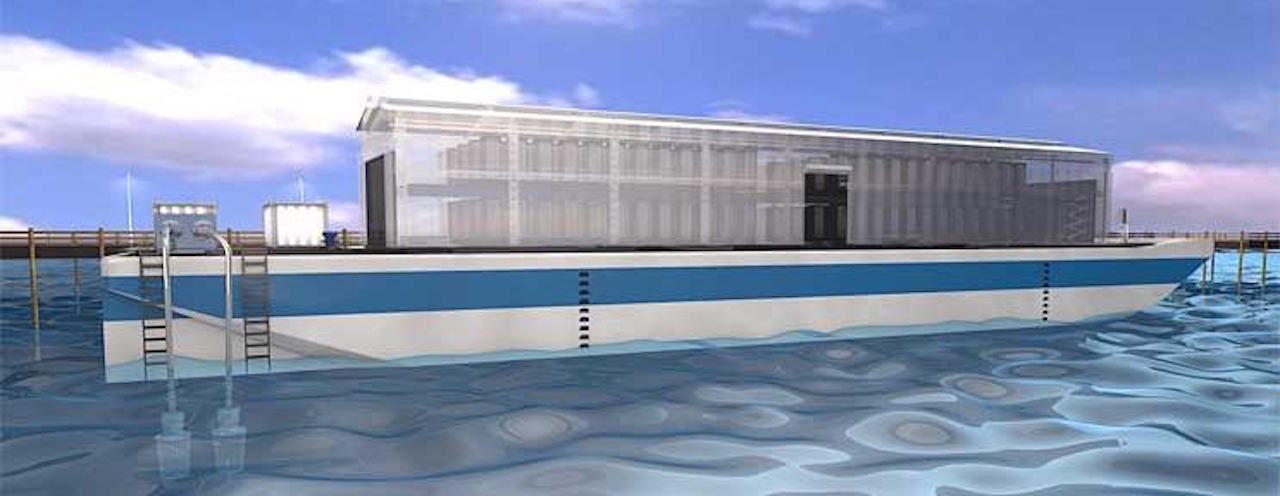Californian start-up Nautilus Data Technologies is building the world’s first waterborne commercial data centre at a naval shipyard near San Francisco, with the aim to reduce energy costs related to data centre operation.

The company stated it has successfully validated its first proof of concept, and expects to put the data centre in production in early 2016.
The idea of floating data centre is not new. Both Google and International Data Security (IDS) have dabbled with this idea in the past. Yet unlike IDS, which went bankrupt, and Google’s patented yet unaccomplished idea to put a floating data centre offshore, where it could be powered and cooled by wave energy, this ‘data barge’ project is real and currently under construction.
So how does the Nautilus data barge work?
Compared to traditional data centres, Nautilus’ floating barge will consume no water to cool the servers. The data centre will be placed on a barge that pumps in abundant naturally cool seawater through a giant self-cleaning barrel and flushes it back into the ocean, saving up to 130 million gallons of water annually.
Could the discharge of warmer water in the ocean potentially harm fisheries and marine life? According to the startup, on discharge, the water will be only two to five degrees Fahrenheit warmer; at this level, there are no environmental or regulatory concerns about the heated water, which would only lead to an inspection from agencies such as the US Environmental Protection Agency if it were heated by 20 degrees Fahrenheit or more.
Nautilus will not use any computer room air conditioning (CRAC) or air handlers, and promises to use up to 30% less energy than traditional data centre, as well as annual electricity savings of more than $4 million and a nearly 20,000-ton reduction in CO2 emissions.
The data centre will run Nautilus’ cloud-service provisioning system and infrastructure management (DCIM) software products, which use artificial intelligence and provide a lights-out management facility, allowing staff expertise to monitor and manage servers remotely.
Nautilus promises to provide competitive pricing and, by being located at a military base, higher security in terms of access control than data centres on land. The ICT infrastructure will be placed on former military and construction barges that meet US Coast Guard and maritime standards, and endure for up to 50 years. The barges can also be easily moved and used in any port that meets the power, security, and network connectivity requirements.
According to the company, In the event of flooding, an ocean-based data centre will simply float above the rising water, which reduces the chances of equipment being damaged.
According to Arnold Magcale, CEO and co-founder of Nautilus Data Technologies, the waterborne data centre solution will provide the most cost-effective, energy-efficient and environmentally sustainable data centre on the market. He says, “our innovations are the most significant data centre advances in decades — marking a revolutionary change in the data centre industry.” The company is funded by a family that invests in the renewable energy sector, but Magcale declined to name the investors.
Nautilus has not identified potential customers yet, but is currently in talks with potential companies and expects to announce contracts in the beginning of next year. The US Navy and Silicon Valley-based A10 Networks and Applied Materials are among the early supporters.













